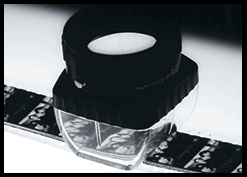The Cup and the Lip, Warren Sonbert, 16mm, 1986, 20 mins
Friendly Witness, Warren Sonbert, 16mm, 1989, 32 mins
With readings by Charles Bernstein, Corrine Fitzpatrick, and Carla Harryman.
Though Warren Sonbert has frequently been described as a maker of diary films, the label fails to capture the emotional and formal intricacies at play in his work. In less than twenty films made from 1966 to the mid-90s—his career caught short by his death from AIDS at age 47—Sonbert’s primary method was indeed the creation of dense montages from 16mm shot in the course of daily life. The same images and ideas were often reused in different permutations for new films and, through this process, footage of his friends and colleagues attains an iconic status that transcends its documentary valence, becoming vibrant evocations of Sirkian melodrama. "I think the films I make are, hopefully, a series of arguments,” Sonbert said of his own work, “with each image, shot, a statement to be read and digested in turn." The rich use of color and delicately punctuated editing also point to the influence of his mentor, Gregory Markopoulos, and Sonbert’s love of Hitchcock, Kenneth Anger, and opera.
The Cup and the Lip and Friendly Witness both date from the late 1980s, when Sonbert was refining and deepening his use of montage. Amy Taubin noted that The Cup and the Lip “is so dense it's impossible to apprehend it at a single viewing,” calling it “Sonbert's darkest work." Precisely composed of 645 individual shots over 22 minutes, set to girl-group songs and the overture to Christoph Willibald von Gluck’s 18th-century opera Iphigeneia in Aulis, Friendly Witness was Sonbert’s return to sound after two decades of purely silent films. Tonight’s event pairs Sonbert with readings by three poets—Charles Bernstein, Corrine Fitzpatrick, and Carla Harryman—a testament to the fact that, though long-admired as a filmmaker’s filmmaker, he always worked in conversation with other forms, literary and otherwise.
Charles Bernstein is author of All the Whiskey in Heaven: Selected Poems (Farrar, Straus, and Giroux, 2010), Blind Witness: Three American Operas (Factory School, 2008); Girly Man (University of Chicago Press, 2006), and My Way: Speeches and Poems (Chicago, 1999). From 1978-1981 he co-edited, with Bruce Andrews L=A=N=G=U=A=G=Emagazine. In the 1990s, he co-founded and directed the Poetics Program at the State University of New York Buffalo. He teaches at the University of Pennsylvania, where he is co-director of PennSound.
Corrine Fitzpatrick is a Brooklyn-based poet, and former Program Coordinator of the Poetry Project at St. Mark’s Church. She is the author of two chapbooks – On Melody Dispatch and Zamboangueña, and her poetry appears in numerous print and online journals. She recently completed the MFA program at Bard College.
Carla Harryman is a poet, essayist, and playwright. Recent books include Adorno's Noise (Essay Press, 2008), Open Box (Belladonna, 2007), Baby (2005), and Gardener of Stars (Atelos, 2001), an experimental novel dedicated to the memory of Warren Sonbert. Forthcoming books include The Wide Road, an erotic picaresque written in collaboration with Lyn Hejinian (Belladonna). She is co-contributor to The Grand Piano, a project that focuses on the emergence of Language Writing, art, politics, and culture of the San Francisco Bay area between 1975-1980. She lives in the Detroit Area and serves on the faculty of the Creative Writing Program at Eastern Michigan University.
Presented as part of Couchsurfing.
Tickets - $7, available at door.

